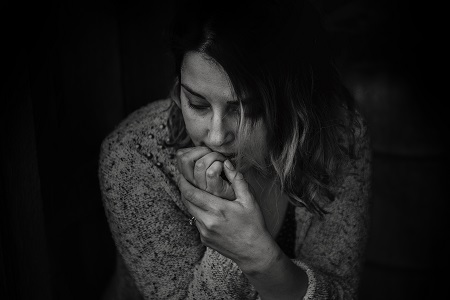Contents
There are many treatments available for people with depression. These treatments can reduce the symptoms and shorten the time frame of depressive disorder. There are medications, and therapies and your mental health professional can determine which treatment is best for you depending upon the severity. Just don’t ignore the symptoms and ignore social stigma. It is your life and you deserve to live without getting judged by others.
Treatments for depression
As mentioned before, the treatment could include medicine or therapies or both depending upon what your doctor thinks is better.
Medications – Treatments for depression

Antidepressant medicines treat depression. They try to improve levels of certain chemicals that control your mood. Your doctor is the only and right person to determine your antidepressant. Sometimes certain antidepressant medicines might not work on one and therefore need to be changed by the mental health professional only. Medicines don’t work overnight; they take some time to deliver results. A few weeks are needed for the medicines to show their effectiveness. In general symptoms like appetite, sleep and concentration problems improve before mood lifts.
Also, remember not to abruptly stop taking antidepressants. Evaluate your condition with your doctor and only upon his advice and proper guidance you can stop the antidepressant. Your doctor will guide you to reduce the dose in a slow and safe manner, otherwise, you may face withdrawal symptoms due to suddenly stopping the medicines.
As per the U.S. Food and Drug Administration (FDA), in the first few weeks of starting the medicine or in some cases where the dose is changed, suicidal behaviour or thoughts have been found among children, teenagers, and young adults aged below 25. Therefore, a close watch should be kept on people who have started taking an antidepressant.
Also, if you are breastfeeding, pregnant, or planning to become a mother, consult with a mental health care professional before going for antidepressant medicine therapy.
Selective serotonin reuptake inhibitors (SSRIs)-treatments for depression
Selective serotonin reuptake inhibitors (SSRIs) are used to treat depression. They increase the availability of serotonin neurotransmitters in your brain. It is one of the commonly prescribed antidepressants and the side effects are also very few.
There are a couple of medicines that might interfere with the actions of Selective serotonin reuptake inhibitors (SSRIs), such as monoamine oxidase inhibitors (MAOIs). If you have narrow-angle glaucoma or you are pregnant then talk to your mental health professional before taking any SSRIs.
Serotonin and norepinephrine reuptake inhibitors (SNRIs)-treatments for depression
Serotonin and norepinephrine reuptake inhibitors (SNRIs) are used to treat depression. They provide both serotonin and norepinephrine neurotransmitters in your brain.
Like SSRIs, SNRIs also should not be taken with monoamine oxidase inhibitors or MAOIs.
One must use caution if they have liver or kidney problems, or narrow-angle glaucoma.
Tricyclic and tetracyclic antidepressants-treatments for depression
Tricyclic antidepressants (TCAs) and tetracyclic antidepressants (TECAs) provide neurotransmitters serotonin and norepinephrine in your brain. They work by increasing the amount of these neurotransmitters in the brain.
The side effects of Tricyclic and tetracyclic antidepressants are higher than
SSRIs or SNRIs. If you have narrow-angle glaucoma, then discuss it with your doctor first. One should not TCAs or TECAs with MAOIs.
Noradrenaline and dopamine reuptake inhibitors (NDRIs)-treatments for depression
Noradrenaline and dopamine reuptake inhibitors (NDRIs) come under atypical antidepressants. They increase the levels of dopamine and noradrenaline in your brain and treat depression. Bupropion (Wellbutrin) is an example of Noradrenaline and dopamine reuptake inhibitors (NDRIs).
Monoamine oxidase inhibitors (MAOIs)-treatments for depression
Monoamine oxidase inhibitors (MAOIs) are not commonly used to treat depression due to many side effects and safety issues. When other medications are not successful in depression treatment then the doctor might recommend MAOIs. Monoamine oxidase inhibitors work by increasing the level of norepinephrine, serotonin, dopamine, and tyramine in your brain.
N-methyl D-aspartate (NMDA) antagonists-treatments for depression
N-methyl-D-aspartate (NDMA) antagonists increase levels of glutamate in the brain. When other antidepressant treatments fail NMDA antagonists are used.
Each type of medication that’s used to treat depression has benefits and potential risks. Never ever go for self-treatment or self-medication.
Psychotherapy- treatments for depression

Psychotherapy is also referred to as talk therapy. In psychotherapy, you speak with your therapist to understand and learn skills to cope with depression. Psychotherapy improves your depression symptoms. It is often used along with medicines or separately depending upon the severity of the symptoms of depression. The session length of psychotherapy depends on your present conditions. This therapy or counselling generally focuses on thoughts‚ feelings‚ and issues currently happening in your life. But your past also helps many a time. Always open up yourself and talk to your therapist honestly.
Never feel embarrassed or try to hide anything. Unless you open up your feelings and concerns, it is very difficult for the therapist to treat you. This is an important part of getting better. Therapy helps you to get healthier, overcome your fears and insecurities, deal with stress and anxiety, have better relationships with family and friends, understand the reason behind your stress, anxiety, and depression and create a plan to deal with it. Therapy also helps one to quit smoking and fight drug and alcohol addiction.
Psychotherapy is of many different types and your therapist decides what kind of psychotherapy is better for you.
Cognitive behavioural therapy (CBT)-treatments for depression
In cognitive behavioural therapy (CBT), your therapist talks to you to understand and uncover your thought patterns. This helps your therapist to understand and identify your reactions, beliefs, and negative behaviours. In CBT your therapist helps you to produce more positive thoughts to replace your negative thoughts.
Dialectical behaviour therapy (DBT)-treatments for depression
While CBT tries to help to fight negative thoughts, dialectical behaviour therapy (DBT) helps you to accept those negative thoughts, feelings, and behaviour. In DBT it is believed that you need to accept your emotions and feelings and this help you to recover from depression.
Psychodynamic therapy-treatments for depression
In psychodynamic therapy the core idea is your unconscious and childhood experiences form your current reality. Your therapist, with talk therapy, helps you to cope with day-to-day life.
Light therapy-treatments for depression

To understand light therapy, we first need to understand circadian rhythms.
As per The National Institute of General Medical Sciences (NIGMS), circadian rhythms are changes in mind and behaviour over a 24 hours cycle. Light and darkness change sleep schedules, body hormones and eating habits. Exposure to light regulates mood and improves symptoms of depression. The wavelength of light and duration of exposure plays an important role in light therapy. The use of light therapy is very common in seasonal affective disorder. Light therapy balances the level of serotonin hormone in your brain. Serotonin helps in mood regulation. This therapy also helps to have good sleep patterns.
References
- Razzak, H. A., Harbi, A., & Ahli, S. (2019). Depression: Prevalence and associated risk factors in the United Arab Emirates. Oman Medical Journal, 34(4), 274–282. https://doi.org/10.5001/omj.2019.56
- U.S. food and drug administration. (2022, July 29). U.S. Food and Drug Administration. http://www.fda.gov/
